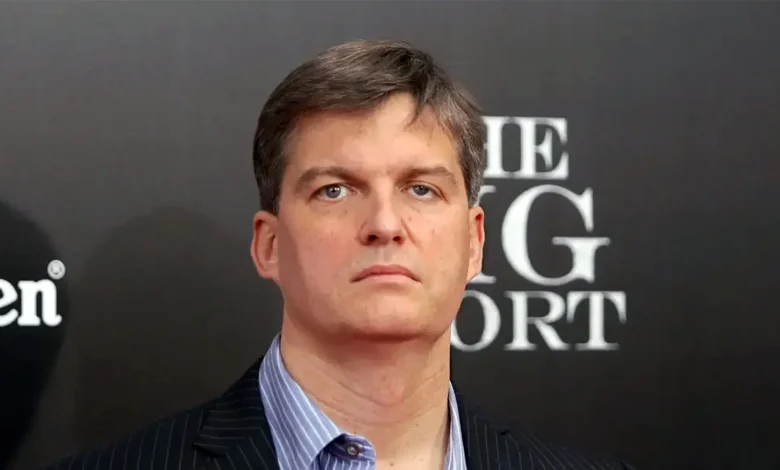Michael Burry Shuts Down Scion Asset Management: What Comes Next After SEC Deregistration?

Quick Read
- Michael Burry de-registered Scion Asset Management from the SEC in November 2025.
- The move suggests Scion may become a family office, reducing public disclosure.
- Burry clarified his Palantir short position, stating his actual risk is $9.2 million, not $912 million.
- He remains cryptic about his next steps, teasing a major announcement on November 25.
- Burry’s criticism of tech sector accounting and AI valuations continues to fuel market debate.
Scion Asset Management Deregisters: A Turning Point for Michael Burry
Michael Burry, the investor whose name became synonymous with prescience after his legendary bet against the subprime mortgage market in 2008, has once again sent ripples through the financial world. This week, Burry de-registered his hedge fund, Scion Asset Management, from the U.S. Securities and Exchange Commission (SEC), marking a dramatic shift in both his business operations and his public persona.
The news, confirmed by Investing.com, broke when Burry posted a screenshot of Scion’s terminated SEC registration on social media. For those who have followed Burry’s career, the act is more than administrative housekeeping—it’s a calculated move that may signal deeper changes afoot. The timing, just days before a cryptic announcement he teased for November 25, has investors and market watchers alike speculating: is Scion about to transform into a family office, or is something even bigger on the horizon?
From Public Hedge Fund to Private Office?
In financial circles, deregistering from the SEC often points to a shift from serving outside investors to operating as a family office. This would mean Scion is no longer required to disclose its portfolio or trades to the public, a level of privacy that Burry has often seemed to crave. A letter, allegedly from Burry to Scion’s investors and dated October 27, began circulating on social media, outlining the closure. While Investing.com could not immediately verify the authenticity of the letter, the move aligns with trends among high-profile investors who prefer to manage their own wealth, free from regulatory scrutiny and outside pressure.
For Burry, who has at times lamented the spotlight that came with his ‘Big Short’ fame, this could be a way to regain control over his investment process. By operating as a family office, he would not only avoid the reporting requirements but also sidestep the kind of media scrutiny that has accompanied his every major position.
Burry’s Market Positions: Palantir, Nvidia, and a Legacy of Contrarian Bets
Even as Scion’s status changes, Burry’s trading strategies remain under the microscope. Recent headlines focused on his short position against Palantir Technologies, a company at the heart of the tech sector’s AI boom. Media outlets initially reported a staggering $912 million notional value on Burry’s bet, leading to speculation about his conviction and the magnitude of his risk.
Burry, never shy about correcting the record, took to social media to clarify: he had spent approximately $9.2 million on options that allow him to sell up to 5 million shares of Palantir at $50 apiece in early 2027. “Each of those doodads let me sell $PLTR at $50 in 2027,” he wrote, poking fun at the media’s math, which he claimed was off by a factor of 100.
On the Nvidia front, filings showed Burry had purchased puts for 1 million shares, representing a notional value of $186.6 million. Yet, he remained tight-lipped about his broader strategy. The moves echo his long-standing skepticism about market bubbles, particularly in sectors powered by artificial intelligence and cloud computing. Recently, Burry criticized leading tech companies for underreporting depreciation on computing assets—chiefly chips—further underscoring his contrarian stance.
The Man Behind the Moves: Burry’s Unique Investment Philosophy
Michael Burry’s reputation was forged in the fires of the 2008 financial crisis, when he famously shorted the housing market. That bet, immortalized in both bestselling books and the film ‘The Big Short,’ earned him admiration and notoriety in equal measure. Yet, Burry has never seemed comfortable with the role of market oracle thrust upon him. He often disappears from public view, only to reemerge with cryptic warnings about bubbles and market excesses.
His criticisms of tech giants and his skepticism about artificial intelligence’s real value are part of a broader pattern: Burry excels at spotting overvaluation and systemic risk where others see endless growth. The closure of Scion Asset Management as a public entity might not mark a retreat, but rather a recalibration—one that allows him to pursue bold bets away from the spotlight.
What’s Next: November 25 and the Mystery Announcement
The timing of Scion’s deregistration is hardly coincidental. Burry has hinted at a major release on November 25, leaving investors and analysts guessing. Is it a new investment vehicle, a sweeping market prediction, or simply a personal milestone? The ambiguity is vintage Burry—inviting speculation while refusing to offer easy answers.
Regardless of what the announcement entails, the closure of Scion Asset Management as an SEC-registered fund marks a significant milestone in Burry’s career. For followers of his investment philosophy, the message is clear: the game may be changing, but Burry’s instinct for disruption remains intact.
The Broader Impact: Lessons for Investors
Burry’s move raises bigger questions for the hedge fund industry and the investing public. As more high-profile managers opt for private family offices, transparency in the market declines. For retail investors who have tried to track Burry’s positions for clues about market sentiment, the shift means less visibility and more guesswork.
Yet, the underlying lesson may be about adaptability. In a world where regulatory burdens, media attention, and public expectations can shape investment decisions as much as market fundamentals, the ability to pivot—to change strategy, to go private, to shift focus—may be the ultimate edge.
As the financial world awaits November 25, one thing is certain: Michael Burry’s next chapter will be written on his own terms.
Burry’s decision to de-register Scion Asset Management is not just an administrative change—it’s a strategic reset that reflects his ongoing skepticism about market exuberance and his desire for autonomy. The closure underscores a broader industry trend toward privacy and adaptability, reminding investors that true contrarians rarely play by the rules of public expectation.





